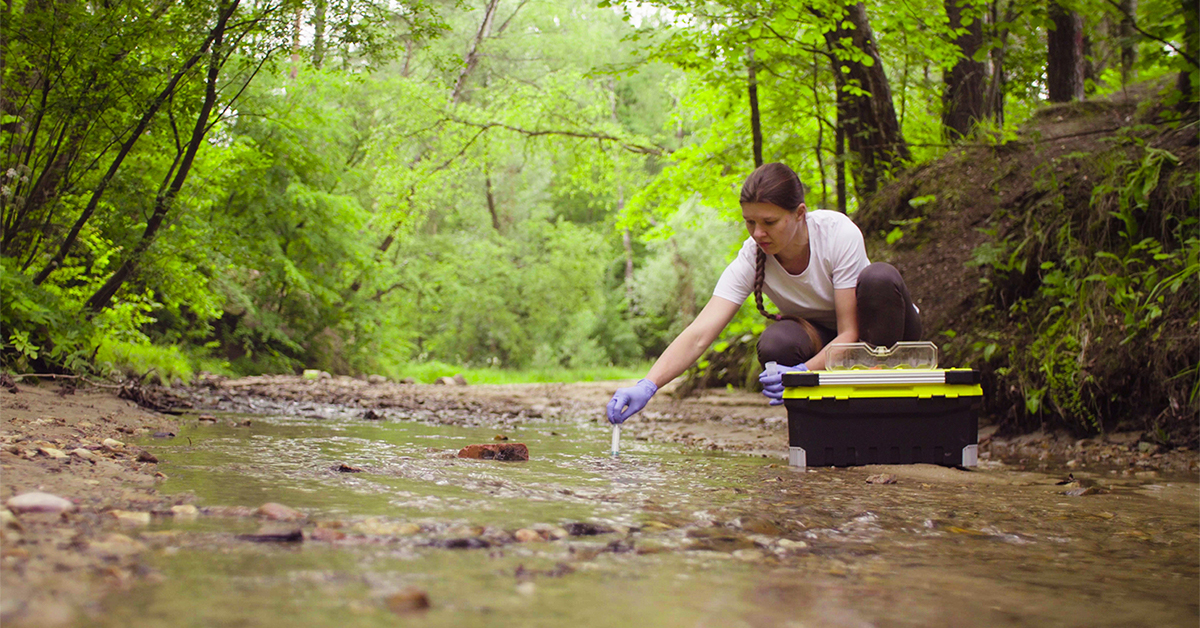Science Degrees and Career Paths: Exploring Opportunities in Environmental, Exercise, and Political Science

Science degrees and career paths: a comprehensive guide
Earn a science degree equip you with valuable skills applicable across numerous industries. Whether you’re interested in environmental science, exercise science, or political science, your education prepares you for diverse career opportunities. This guide explores the career paths available to graduates in these fields and examine the fundamental goals of science and emerge opportunities in environmental science.
Career opportunities with an environmental science degree
Environmental science graduates possess specialized knowledge about ecosystems, natural resources, and the impact of human activities on our planet. This expertise is progressively valuable as organizations prioritize sustainability and environmental protection.
Conservation and wildlife management
Environmental scientists oftentimes work in conservation, protect natural habitats and wildlife. Positions include:
- Wildlife biologist
- Conservation scientist
- Park ranger
- Marine conservationist
- Forestry technician
These roles involve monitor ecosystems, conduct field research, and implement conservation strategies to protect biodiversity.
Environmental consulting and assessment
Many environmental science graduates work as consultants, help businesses comply with regulations and minimize their environmental impact. Career options include:
- Environmental consultant
- Environmental impact assessor
- Sustainability specialist
- Compliance officer
- Remediation specialist
These professionals conduct environmental assessments, develop sustainability plans, and help organizations implement eco-friendly practices.
Environmental policy and advocacy
For those interested in influence environmental regulations and policies, careers include:
- Environmental policy analyst
- Environmental advocate
- Sustainability coordinator
- Environmental lobbyist
- Environmental program manager
These roles involve research environmental issues, develop policy recommendations, and advocate for environmental protection measures.
Environmental research and education
Many environmental scientists contribute to research and education:
- Research scientist
- Environmental educator
- Science writer
- University professor
- Laboratory technician
These careers focus on advance environmental knowledge and raise awareness about environmental issues through research, teaching, and communication.
Career paths with an exercise science degree
Exercise science graduates understand human movement, physical fitness, and the physiological responses to exercise. This knowledge open doors to careers in fitness, healthcare, and sports.
Fitness and personal training
Many exercise science graduates work straight with clients to improve fitness and health:
- Personal trainer
- Group fitness instructor
- Strength and conditioning coach
- Fitness director
- Corporate wellness coordinator
These professionals design exercise programs, provide fitness instruction, and help clients achieve their health and wellness goals.
Clinical exercise physiology
Exercise science graduates can pursue careers in healthcare settings:
- Clinical exercise physiologist
- Cardiac rehabilitation specialist
- Pulmonary rehabilitation therapist
- Exercise specialist in medical settings
- Health and wellness coach
These roles involve work with patients who have chronic diseases or are recovered from medical procedures, use exercise as a therapeutic intervention.
Sports performance and athletic training
For those passionate about sports and athletic performance:
- Athletic trainer
- Sports performance specialist
- Team conditioning coach
- Sports scientist
- Biomechanist
These professionals help athletes improve performance, prevent injuries, and recover from sports relate injuries.
Exercise science research and education
Some exercise science graduates pursue careers in research and education:
- Exercise physiologist researcher
- University professor
- Exercise science instructor
- Sports medicine researcher
- Physical education teacher
These roles contribute to the scientific understanding of exercise and physical activity and educate others about exercise science principles.
Opportunities with a political science degree
Political science graduates develop strong analytical, research, and communication skills, prepare them for careers in government, law, business, and nonprofit sectors.
Government and public administration
Many political science graduates work in government at local, state, or federal levels:
- Legislative aide
- Policy analyst
- City manager
- Government affairs specialist
- Foreign service officer
These roles involve develop and implement public policies, manage government programs, and serve as liaisons between government entities and constituents.
Law and legal services
Political science provide excellent preparation for legal careers:
- Attorney (after law school )
- Legal analyst
- Paralegal
- Compliance officer
- Mediator
These professionals interpret and apply laws, provide legal advice, and represent clients in legal proceedings.
Advocacy and nonprofit work
Political science graduates oft work for organizations advocate for social change:
- Nonprofit program director
- Community organizer
- Campaign manager
- Public affairs specialist
- Human rights advocate
These roles involve raise awareness about social issues, mobilize communities, and advocate for policy changes.
Business and consulting
The analytical skills of political science graduates are valuable in business settings:
- Political risk analyst
- Government relations specialist
- Public relations consultant
- Market research analyst
- Corporate social responsibility manager
These professionals help businesses navigate political landscapes, understand regulatory environments, and develop strategies for engage with government entities.
The fundamental goals of science
Understand the core objectives of scientific inquiry provide context for how science degrees prepare graduates for diverse careers. The primary goals of science include:
Discovery and knowledge creation
Science aim to expand human knowledge by discover new phenomena, understand natural processes, and develop theories that explain how the world work. This goal drive scientific research across all disciplines and contribute to our collective understanding of the universe.
Problem-solving and application
Science seek practical applications for scientific knowledge to solve real world problems. From develop new technologies to address environmental challenges, apply science translate theoretical understanding into practical solutions that improve human life and protect our planet.
Critical thinking and evidence base decision make
Science promote rational thinking base on evidence instead than opinion or tradition. The scientific method — involve observation, hypothesis formation, experimentation, and analysis — provide a framework for make inform decisions base on verifiable facts.
Prediction and control
Scientific theories allow us to predict future events and control natural processes. Whether forecast weather patterns or understand disease transmission, scientific knowledge enable us to anticipate outcomes and develop interventions that shape future events.
Emerge career fields in environmental science
As environmental challenges evolve and new technologies emerge, environmental science graduates can pursue innovative career paths that didn’t exist a decade alone:
Climate change mitigation and adaptation
The growth focus on address climate change hacreatedte new opportunities:
- Climate change analyst
- Carbon management specialist
- Climate resilience planner
- Climate policy advisor
- Climate finance specialist
These professionals develop strategies to reduce greenhouse gas emissions, assess climate risks, and help communities adapt to change climate conditions.
Renewable energy and clean technology
The transition to sustainable energy sources has created demand for environmental scientists in:
- Renewable energy analyst
- Solar and wind energy developer
- Energy efficiency consultant
- Sustainable technology specialist
- Green building consultant
These roles involve develop, implement, and assess renewable energy technologies and sustainable infrastructure projects.
Environmental data science and technology
The integration of technology with environmental science has lead to new career paths:
- Environmental data scientist
- Gi’s( geographic information systems) specialist
- Remote sensing analyst
- Environmental modeler
- Ecological informatics specialist
These professionals use advanced technologies to collect, analyze, and visualize environmental data, inform conservation efforts and environmental management strategies.
Sustainable business and corporate environmental responsibility
As businesses prioritize sustainability, opportunities have emerged for:
- Corporate sustainability manager
- ESG (environmental, social, governance )specialist
- Circular economy consultant
- Supply chain sustainability analyst
- Green marketing specialist
These roles help businesses reduce their environmental footprint, develop sustainable products and services, and communicate their environmental commitments to stakeholders.
Interdisciplinary opportunities across science fields
Many exciting career opportunities exist at the intersection of environmental science, exercise science, and political science:
Environmental health and public health
Combine environmental science with exercise science create opportunities in:
- Environmental health specialist
- Outdoor recreation therapist
- Eco fitness program developer
- Active transportation planner
- Public health educator
These professionals address the connections between environmental conditions, physical activity, and human health.
Environmental policy implementation
Merge environmental science with political science lead to careers in:
- Environmental policy implementation specialist
- Sustainable development planner
- Environmental justice advocate
- International environmental relations specialist
- Environmental law enforcement officer
These roles involve translate environmental policies into action and ensure compliance with environmental regulations.

Source: cnr.ncsu.edu
Sports and recreation management
Combine exercise science with political science or environmental science create opportunities in:

Source: paperwriter.com
- Sustainable sports facility manager
- Recreation policy developer
- Outdoor education program director
- Community wellness coordinator
- Sports tourism developer
These professionals develop and manage sports and recreation programs that promote both human health and environmental sustainability.
Maximize your science degree’s potential
Irrespective of your specific science degree, certain strategies can help you maximize your career opportunities:
Gain practical experience
Internships, research assistantships, volunteer work, and part-time jobs in your field provide valuable hands-on experience that complement your academic knowledge and make you more attractive to employers.
Develop transferable skills
Focus on building skills applicable across multiple settings, such as data analysis, project management, communication, problem solve, and teamwork. These skills enhance your versatility in the job market.
Build professional networks
Join professional associations, attend conferences, participate in online forums, and connect with alumni from your program. Networking oftentimes lead to job opportunities and provide valuable insights about your field.
Consider advanced education
For some career paths, graduate degrees or specialized certifications may be necessary or beneficial. Research the educational requirements for your desire career and plan consequently.
Stay current with industry trends
Subscribe to professional journals, follow relevant blogs and news sources, and participate in continue education opportunities to stay informed about developments in your field.
Conclusion
Science degrees in environmental science, exercise science, and political science provide versatile foundations for diverse and rewarding careers. These fields share the common goals of scientific inquiry: expand knowledge, solve problems, promote critical thinking, and enable prediction and control of natural and social phenomena.
As global challenges evolve, new career opportunities continue to emerge, especially in environmental science fields like climate change mitigation, renewable energy, environmental data science, and sustainable business practices. By gain practical experience, develop transferable skills, build professional networks, consider advanced education, and stay current with industry trends, science graduates can maximize their career potential and make meaningful contributions to society.
Whether you’re passionate about environmental conservation, human health and fitness, or political systems and policy development, your science degree equip you with valuable knowledge and skills that can lead to a fulfilling and impactful career path.






